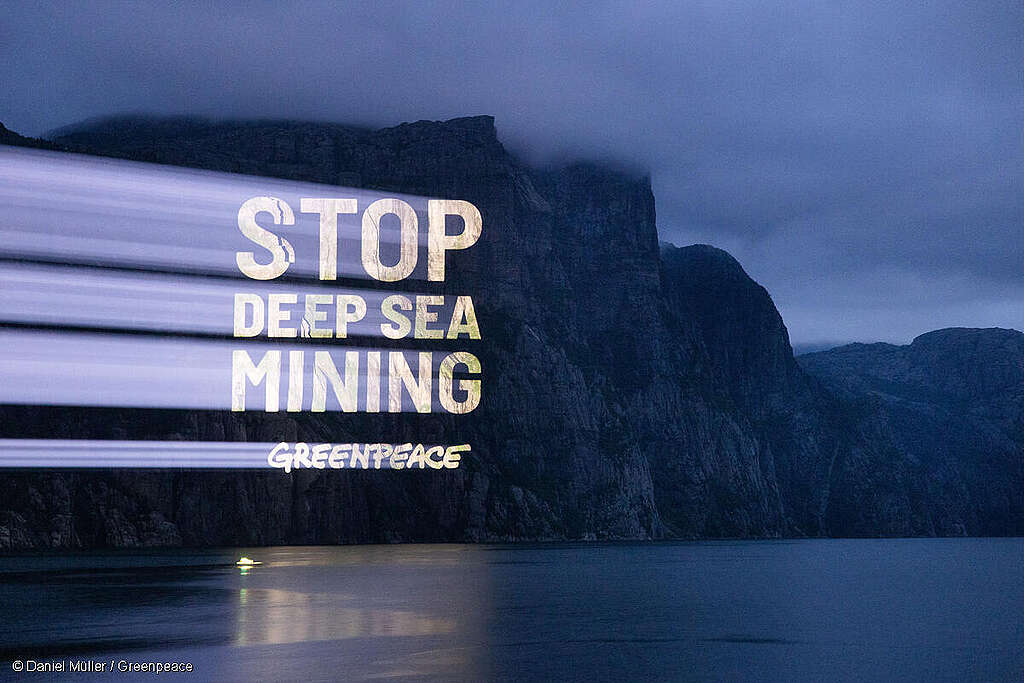
PETITION: Stop Deep Sea Mining
An emerging new industry could destroy this fragile and unique deep sea environment before we truly understand its importance.
By Laurie Tuffrey / The Guardian
Greenpeace activists shut down 74 Shell petrol stations in Edinburgh and London in a protest against the company’s plans to drill for oil in the Arctic that saw 24 campaigners arrested on Monday.
The campaigners are attempting to shut off petrol to London’s 105 Shell stations and Edinburgh’s 14. Seventy-one have been closed in London and three in Edinburgh.
There have been 24 confirmed arrests, 18 in London and six in Edinburgh. The police in Edinburgh have reportedly parked cars outside all Shell stations across the capital.
Protesters have scaled the roof of the Shell station on Queenstown Road near Battersea Park in London and on Dalry Road in Edinburgh, with police and fire crews attending the scene in Edinburgh.
Activists arrived at the Battersea Park branch at 6.45am and used the station’s barriers to close down the forecourt. They have since covered the Shell sign with a Save the Arctic banner and positioned a life-sized polar bear model on the station’s roof.
The activists are shutting down the stations by using an emergency shut-off switch to stop petrol going to the pumps and then removing a fuse to delay it being switched on again. The organisation has since posted a picture of an activist posting one of the fuses to Shell’s head of Arctic drilling, with the message: “We’re being careful not to destroy property. Even the carefully removed components will go back to Shell.”
The protest is part of Greenpeace’s Save the Arctic campaign, which is aiming to prevent oil drilling and industrial fishing in the Arctic by having the region recognised as a world park. The organisation understands that Shell is going to begin drilling in the Alaskan Arctic in the coming weeks, with the Russian oil company Gazprom also due to work in the region.
The campaign group’s website is running a TV talkshow-style live broadcast covering the protest and showing interviews and videos about the Arctic campaign.
Sara Ayech, a campaigner at the Battersea Park station, said: “It’s time to draw a line in the ice and tell Shell to stop. That’s why today we’re going to shut down all of Shell’s petrol stations in the capital cities of London and Edinburgh. We’ve got dozens of people who will hit over 100 Shell garages throughout the day.”
Graham Thompson is another campaigner who helped shut down the station: “The staff were very pleasant and very reasonable. Obviously they’re not entirely happy about what’s going on but they’ve responded in a very civilised way.
“Obviously, we need to ratchet up the pressure, we need to let Shell know that this isn’t just a publicity campaign, we’re going to put pressure on them until they agree to stop what they’re doing,” said Thompson, commenting on future plans.
Read more from The Guardian: http://www.guardian.co.uk/environment/2012/jul/16/greenpeace-activists-shell-petrol
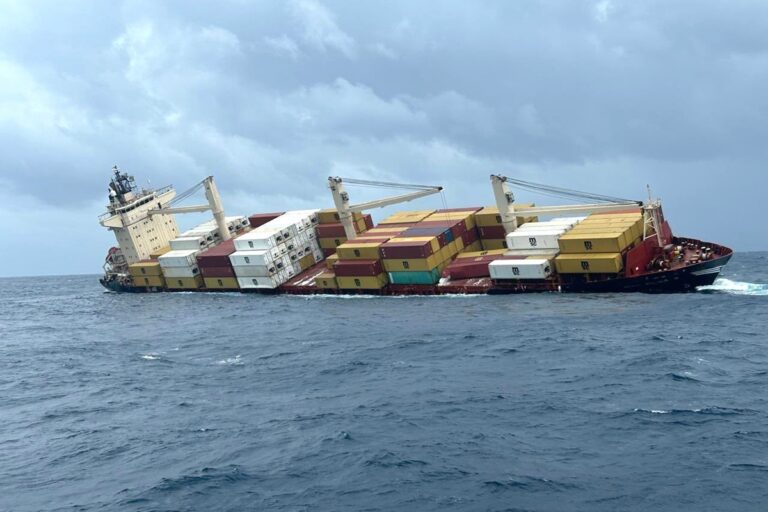
Editor’s note: Result of deeper structural failures
Speaking at a media briefing to raise awareness on the importance of accountability when such maritime disasters occur, Anita Perera, Campaigner for Greenpeace South Asia, said that when a team visited Mannar on June 19, they noticed a significant number of plastic pellets even after one round of cleanup operations. “The Mediterranean Shipping Company (MSC) is responsible for cleaning up the oil spill, but so far, they haven’t communicated their response to expedite the cleaning of nurdles or the oil spill. This isn’t an isolated incident but a result of deeper structural failures in how we are governing our oceans and environmental safety. These are critical ecosystems, and there are people(and all of the other species) whose daily livelihoods would be affected as a result of such disasters. We need to hold these companies accountable for such incidents,” she underscored.
By Malaka Rodrigo / Mongabay
COLOMBO — Sri Lanka is once again facing a significant marine environmental crisis, as tiny plastic pellets, commonly known as nurdles, have begun washing ashore along the island’s northern coastline. This time, the pollution is linked to the sinking of the Liberia-flagged container ship MSC ELSA 3 off of Kerala, India. The unfolding incident has triggered fears of a repeat of the X-Press Pearl disaster in 2021, the worst maritime disaster to have occurred in Sri Lanka, significantly impacting marine ecosystems and coastal communities.
According to the Indian Coast Guard, the MSC ELSA 3, carrying 640 containers including hazardous cargo, sank on May 25, roughly 38 nautical miles off the Kerala coast. The cause was reportedly a failure of its ballast system. Indian authorities confirmed the vessel was loaded with an estimated 85 metric tons of diesel and 367 metric tons of furnace oil, in addition to at least 13 containers of dangerous substances such as calcium carbide. All 24 crew members were safely rescued by Indian Coast Guard and Navy teams.
While Indian authorities were able to initially contain an oil spill, the environmental fallout soon escalated. Plastic nurdles released from sunken containers began appearing on beaches in southern India, and by June 11, ocean currents driven by strong gusts of southwest monsoon winds carried them toward Sri Lanka’s northern shores, raising serious concerns among marine biologists and local communities.

Fresh environmental fallout
“We’ve begun cleaning efforts and are evaluating coordinated response actions,” said Padma Abeykoon, additional secretary at the Ministry of Environment. With strong monsoon winds forecast for the coming days, she noted that ocean currents may bring even more pollutants ashore.
According to Abeykoon, Indian authorities had alerted Sri Lanka about the possibility of debris from the sunken vessel drifting toward its shores, depending on ocean current patterns. The plastic pellets first arrived on the northern islands and reached the Mannar coast within a day, continuously washing up along Sri Lanka’s southern-facing beaches.
One of the earliest reports from Sri Lanka came from Lahiru Walpita, a birdwatcher in Mannar, who observed the nurdles during his routine early morning seabird monitoring. “On June 12, I noticed strange white pebbles scattered across the Mannar beach. A closer look revealed they were plastic nurdles, something I sadly recognize from the X-Press Pearl spill,” Walpita said.
Walpita initially assumed the rough seas had opened up a remnant of X-Press Pearl, but as he discovered 20 25-kilogram (55-pound) bags of nurdles strewn across a 2-kilometer (1.2-mile) stretch of beach in Mannar, he realized something was wrong. Out of these, only two bags were damaged, and others were in perfect shape, Walpita told Mongabay.
Walpita also observed crows and an egret investigating the pellets but hadn’t consumed them. “However, seabirds, like little terns and bridled terns, feed off the ocean surface while in flight and I fear they could mistake these pellets for food as they have little time to observe,” he warned. The breeding season for these species, especially on tiny islands nearby in Adam’s Bridge Marine National Park, runs from May to September, and Walpita fears the nurdle invasion could disrupt their reproductive cycles.

Temporary fishing ban
Meanwhile, Indian authorities imposed a temporary fishing ban within 20 nautical miles of the MSC ELSA 3 wreck to mitigate risks from hazardous cargo. One of the most concerning chemicals on board was calcium carbide, which reacts violently with water to release acetylene — a highly flammable and potentially explosive gas — and produces caustic substances harmful to marine life.
“The ship sank about 300 nautical miles from Sri Lanka, so we don’t anticipate immediate chemical contamination threat for Sri Lankan waters,” said Jagath Gunasekara, general manager of Sri Lanka’s Marine Environment Protection Authority. “However, we are conducting continuous water quality tests and have activated the National Oil and Hazardous Noxious Substances Spill Contingency Plan to remain prepared,” he added.
Adding to the urgency, Indian authorities are battling another maritime emergency just two weeks after the ELSA 3 incident. On June 7, the Singapore-flagged container ship MV Wan Hai 503 caught fire following multiple explosions, approximately 88 nautical miles off the coast of Kerala. The vessel, carrying more than 2,128 metric tons of fuel and numerous containers with hazardous materials, poses a potentially greater environmental risk than ELSA 3. As of June 18, Indian Coast Guard reports indicated that the fire was under control. The drifting vessel has since been secured and successfully towed away.

Nurdle spill
The nurdles are highly persistent in the marine environment, as they can absorb toxic chemicals and enter the food chain, posing a risk to marine life and potentially humans as research on the aftermath of X-Press Pearl disaster proves.
The parallels of these disasters with the X-Press Pearl disaster are striking. The 2021 incident released billions of nurdles into the Indian Ocean, contaminating beaches for months, killing marine organisms and disrupting fishing livelihoods. One silver lining is that a lot of research was conducted following the X-Press Pearl disaster, and this can be informative in tackling the ongoing episode of the nurdle pollution, Gunasekara said.
Even today, Sri Lanka is fighting for adequate compensation, with legal proceedings dragging on in international courts. The echoes of that catastrophe now serve as a grim warning: Unless stronger regional protocols and maritime safety measures are enforced, the region could be doomed to repeat history.
Malaka Rodrigo is a naturalist with an IT background that took environmental journalism in 2007 to follow his belief ‘conservation through awareness’. He won many awards for his work and writes extensively on biodiversity, wildlife, oceans, water, climate change and environmental issues.
Banner image: The Liberia-flagged vessel MSC ELSA 3, carrying 640 containers including 13 with hazardous cargo, together with almost 85 metric tons of diesel and 367 metric tons of furnace oil sank on 25 May, off of Kerala in southern India. Image courtesy of the Indian Coast Guard.

“This story was originally published by Grist. Sign up for Grist’s weekly newsletter here.”
Miguel Guimaraes, a Shipibo-Konibo leader, has spent his life protesting palm oil plantations and other agribusiness ventures exploiting the Amazon rainforest in his homeland of Peru. Last spring, as he attended a United Nations conference on protecting human rights defenders in Chile, masked men broke into his home, stole his belongings, and set the place on fire. Guimarares returned days later to find “he will not live” spray-painted on the wall.
The U.N. special rapporteur on human rights defenders, Mary Lawlor, denounced the attack and urged Peru to guarantee Guimarare’s protection. Although Guimaraes enjoyed international support, his assailants haven’t been identified.
Guimaraes is one of 6,400 activists who endured harassment or violence for defending human rights against corporate interests. That’s according to a new report from the Business & Human Rights Resource Centre that chronicles attacks and civil violations human rights defenders worldwide have experienced over the past decade. Although Indigenous people make up 6 percent of the world population, they accounted for one-fifth of the crimes documented in the report. They also were more likely than others to be killed, particularly in Brazil, the Philippines, and Mexico.
Some of these attacks arise from the “range of ways” governments are restricting civic space and discourse and “prioritizing economic profit,” said Christen Dobson, an author of the report and co-head of the Civic Freedoms and Human Rights Defenders Programme. “Over the past 10 years, we’ve seen a consistent, sustained pattern of attacks against people who speak out against business-related human rights, risks, and harms,” he said.
People like Guimaraes experience a wide variety of harassment, including judicial intimidation, physical violence, death threats, and killings. Most abuse stems from defenders raising concerns about the social and environmental harm industrial development brings to their communities and land. (More than three-quarters of all cases involve environmental defenders, and 96 percent of the Indigenous people included in the report were advocating for environmental and land issues.) The majority are tied to increased geopolitical tensions, a crackdown on freedom of speech, and the global minerals race, the report found.
Most of these attacks are reported by local organizations focused on documenting and collecting Indigenous cases, and the number of crimes against them may be higher. “The only reason we know about even a slice of the scale of attacks against defenders worldwide is because defenders themselves are sharing that information, often at great risk,” said Dobson.
Virtually every industry has a case in the database that the Business & Human Rights Resource Centre maintains. The organization has tracked companies, trade associations, and governments believed to have requested, or paid, law enforcement to intervene in peaceful protest activity. In 2023, for example, local authorities in Oaxaca, Mexico, attacked and injured members of the Union of Indigenous Communities of the Northern Zone of the Isthmus who were peacefully blocking the Mogoñe Viejo-Vixidu railway, which posed a threat to 12 Indigenous communities in the area.
The protest against the Dakota Access Pipeline saw the highest number of attacks related to a single project over the last decade, the report found. Around 100,000 people in 2016 and 2017 gathered to oppose the pipeline and were met with a campaign of harassment, intimidation, and arrest. Energy Transfer, the company that led the project, filed a defamation suit accusing Greenpeace of violating trespassing and defamation laws and coordinating the protests. In March, a jury ordered Greenpeace to pay $660 million in damages, a verdict legal experts called “wildly punitive.”
The Business & Human Rights Resource Centre cites that lawsuit as an example of companies using a legal tactic called a strategic lawsuit against public participation, or SLAPP suit, to silence dissent and harass protesters. But Energy Transfer cited that courtroom victory in its response to the nonprofit’s report: “The recent verdict against Greenpeace was also a win for the people of North Dakota who had to live through the daily harassment and disruptions caused by the protesters who were funded and trained by Greenpeace.”
Fossil fuel companies were hardly the only offenders, however. Dobson and her team identified several cases involving renewable energy sectors, where projects have been linked to nearly 365 cases of harassment and more than 100 killings of human rights defenders.
But mining, including the extraction of “transition minerals,” leads every sector in attacks on defenders. Forty percent of those killed in such crimes were Indigenous, a reflection of the fact that more than half of all critical minerals lie in or near Indigenous land.
The outsize scale of harassment and violence against Indigenous people prompted the U.N. special rapporteur to release a statement last year making clear that “a just transition to green energy must support Indigenous peoples in securing their collective land rights and self-determination over their territories, which play a vital role in biodiversity, conservation, and climate change adaptation.“
Businesses, particularly those in mining and metals, are being pressured to ensure their operations do just that. The Consolidated Mining Standard Initiative, or CSMI, for example, is a voluntary framework to improve industry policies adopted by several trade associations like the Mining Association of Canada. “The standard addresses a broad range of community risks by requiring mining operations to work with communities to identify and work together to mitigate risks faced by the community,” the association said. “Such risks include those to human rights defenders, where they exist.”
Another member of the initiative, the International Council of Mining and Metals, said it has “strengthened our member commitments on human rights defenders to explicitly include defenders in companies’ due diligence, stakeholder engagement, and security processes. Defenders often work on issues related to land, the environment, and Indigenous peoples’ rights.”
Even as this report highlights the dangers human rights defenders face, a growing need for critical minerals, mounting demand for the infrastructure to support AI, and the dismantling of regulatory oversight in the United States bring new threats. The report also makes clear that these attacks will not decrease until broad agreements to adopt and implement protections for these activists are enacted. Such policies must be accompanied by legislation designating Indigenous stewardship of their land and requiring their involvement in project consultations.
Yet Indigenous organizations tend to doubt any industry can be trusted to voluntarily participate in such efforts. In a letter sent to the CSMI, 25 human rights organizations including the Business & Human Rights Resource Centre said mandatory participation will be required to ensure robust protection of human rights defenders and relationships between industry and Indigenous peoples. “People and the environment suffer when companies are left to self-regulate with weak voluntary standards,” the letter stated.
Still, change is coming, however slowly. When Dobson and her team started tracking the harassment and violence against human rights defenders, she wasn’t aware of any companies with a policy pledging to not contribute to or assist attacks against defenders. Since then, “We’ve tracked 51 companies that have made this policy commitment,” she said. “Unfortunately that doesn’t always mean we see progress in terms of implementation of those policies.”
This article originally appeared in Grist at https://grist.org/indigenous/indigenous-land-defenders-face-rising-threats-amid-global-push-for-critical-minerals/.
Grist is a nonprofit, independent media organization dedicated to telling stories of climate solutions and a just future. Learn more at Grist.org
https://www.googletagmanager.com/gtm.js?id=GTM-TG2PKBX
Photo by Datingscout on Unsplash
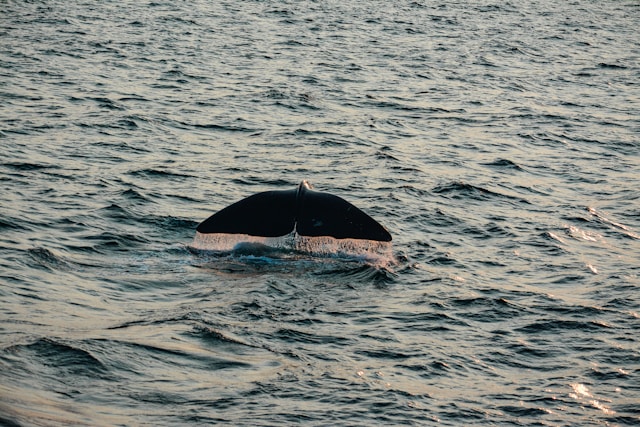
By Olivia Rosane is a staff writer for Common Dreams from Dec 02, 2024
Environmental organizations cheered as Norway’s controversial plans to move forward with deep-sea mining in the vulnerable Arctic Ocean were iced on Sunday.
The pause was won in Norway’s parliament by the small Socialist Left (SV) Party in exchange for its support in passing the government’s 2025 budget.
“Today marks a monumental victory for the ocean, as the SV Party in Norway has successfully blocked the controversial plan to issue deep-sea mining licenses for the country’s extended continental shelf in the Arctic,” Steve Trent, CEO and founder of the Environmental Justice Foundation, said in a statement. “This decision is a testament to the power of principled, courageous political action, and it is a moment to celebrate for environmental advocates, ocean ecosystems, and future generations alike.”
Norway sparked outrage in January when its parliament voted to allow deep-sea mining exploration in a swath of its Arctic waters larger than the United Kingdom. Scientists have warned that mining the Arctic seabed could disturb unique hydrothermal vent ecosystems and even drive species to extinction before scientists have a chance to study them. It would also put additional pressure on all levels of Arctic Ocean life—from plankton to marine mammals—at a time when they are already feeling the impacts of rising temperatures and ocean acidification due to the burning of fossil fuels.
“The Arctic Ocean is one of the last pristine frontiers on Earth, and its fragile ecosystems are already under significant stress from the climate crisis,” Trent said. “The idea of subjecting these waters to the destructive, needless practice of deep-sea mining was a grave threat, not only to the marine life depending on them but to the global community as a whole.”
“Thankfully, this shortsighted and harmful plan has been halted, marking a clear victory in the ongoing fight to protect our planet’s blue beating heart,” Trent continued.
In June, Norway announced that it would grant the first exploratory mining licenses in early 2025. However, this has been put on hold by the agreement with the SV Party.
“This puts a stop to the plans to start deep-sea mining until the end of the government’s term,” party leader Kirsti Bergstø said, as The Guardian reported.
Norway next holds parliamentary elections in September 2025, so no licenses will be approved before then.
The move comes amid widespread opposition to deep-sea mining in Norway and beyond. A total of 32 countries and 911 marine scientistshave called for a global moratorium on the practice. More than 100 E.U. parliamentarians wrote a letter opposing Norway’s plans specifically, and the World Wide Fund for Nature (WWF) has sued to stop them.
“This is a major and important environmental victory!” WWF-Norway CEO Karoline Andaur said in a statement. “SV has stopped the process for deep seabed mining, giving Norway a unique opportunity to save its international ocean reputation and gain the necessary knowledge before we even consider mining the planet’s last untouched wilderness.”
Haldis Tjeldflaat Helle, the deep-sea mining campaigner at Greenpeace Nordic, called the decision “a huge win.”
“After hard work from activists, environmentalists, scientists, and fishermen, we have secured a historic win for ocean protection, as the opening process for deep-sea mining in Norway has been stopped,” Helle said in a statement. “The wave of protests against deep-sea mining is growing. We will not let this industry destroy the unique life in the deep sea, not in the Arctic nor anywhere else.”
However, Norway’s Arctic waters are not entirely safe yet.
Prime Minister Jonas Gahr Stoere, of the Labour Party, toldTV2, on Sunday, “This will be a postponement.”
The government said that other work to begin the process of deep-sea mining, such as drafting regulations and conducting environmental impact surveys, would move forward. Norway is currently governed by the Labour and Center parties. The two parties leading in polls for September’s elections—the Conservatives and Progress Party—also both back deep-sea mining, according toReuters.
“If a new government attempts to reopen the licensing round we will fight relentlessly against it,” Frode Pleym, who leads Greenpeace Norway, told Reuters.
Other environmental groups tempered their celebrations with calls for further action.
Trent of the Environmental Justice Foundation said that “while today is a cause for celebration, this victory must not be seen as the end of the struggle.”
“We urge Norway’s government, and all responsible global actors, to make this a lasting victory by enshrining protections for the Arctic Ocean and its ecosystems into law, and coming out in favor of a moratorium or ban on deep-sea mining,” Trent added. “It is only through a collective commitment to sustainability and long-term stewardship of our oceans that we can ensure the health of the marine environment for generations to come.”
Trent concluded: “Today, thanks to the SV Party and all those around the world who spoke up against this decision, the ocean has won. Now, let’s ensure this victory lasts.”
Andaur of WWF said that this was a “pivotal moment” for Norway to “demonstrate global leadership by prioritizing ocean health over destructive industry.”
As WWF called on Norway to abandon its mining plans, it also urged the nation to reconsider its exploitation of the ocean for oil and gas.
“Unfortunately, we have not seen similar efforts to curtail the Norwegian oil industry, which is still getting new licenses to operate in Norwegian waters, including very vulnerable parts of the Arctic,” Andaur said. “Norway needs to explore new ways to make money without extracting fossil fuels and destroying nature.”
Greenpeace also pointed to the role Norway’s pause could play in bolstering global opposition to deep-sea mining.
“Millions of people across the world are calling on governments to resist the dire threat of deep-sea mining to safeguard oceans worldwide,” Greenpeace International Stop Deep-Sea Mining campaigner Louisa Casson said. “This is a huge step forward to protect the Arctic, and now it is time for Norway to join over 30 nations calling for a moratorium and be a true ocean champion.”
Photo by Alain Rieder on Unsplash

Nick Young 26 July 2024 / Greenpeace Scientists have found a source of ‘dark oxygen’ 4,000 meters below the surface of the Pacific in the target zone for deep sea mining. The discovery could have far-reaching implications for science and the wannabe deep sea mining industry. It’s often said that we know more about the surface of the moon than we do about the deep ocean. This new discovery of dark oxygen shows how true that is, and underlines the need to stop a new deep sea mining industry from targeting its source.
What scientists mean by ‘dark oxygen’ is that – in the total darkness of the very deep ocean – around 4,000 meters below the surface of the Pacific Ocean – oxygen is being produced – in the dark.
It’s previously been thought that oxygen on Earth is produced on land and at the surface of the ocean, where sunlight makes plant photosynthesis possible.
Plants on land are the biggest producers of oxygen, but marine algae and phytoplankton also produce it. These microscopic organisms perform photosynthesis in the ocean, which covers about 70% of the Earth’s surface.
Blue-green algae – or cyanobacteria – are some of the oldest organisms on Earth and can also produce oxygen. They were among the first to do so through photosynthesis, and they also need sunlight.
The common factor in oxygen production is sunlight – until this discovery of dark oxygen showed that oxygen is also being produced in another way in the deep dark sea.
The dark oxygen discovery is being hailed as a groundbreaking scientific discovery, but it also has other implications.
Nick Owens, the director of the Scottish Association for Marine Science (SAMS) says: “The fact that we’ve got another source of oxygen on the planet other than photosynthesis has consequences and implications that are utterly profound.”
Andrew Sweetman, who was one of the SAMS scientists involved in the research, says in a video: “This research potentially sheds light on where life began on the planet. This discovery has shown that, well, maybe there was another source of oxygen a long time ago and aerobic life or life that breathes oxygen could have persisted before the rise of photosynthesis — and if it’s happening on our planet could it be happening on other planets too?”
But as well as those wider implications, the discovery has significant and immediate implications for the controversial deep sea mining industry which somewhat ironically sponsored the science.
Here’s the thing. This dark oxygen, instead of being produced by plants and sunlight, is being produced by strange potato-shaped metallic lumps found on the deep sea floor.
It turns out that these lumps – otherwise known as ‘polymetallic nodules’ – give off almost as much electricity as AA batteries! By reacting with salt water, their electrical charge produces oxygen way down there on the seabed of the deep ocean through a process known as ‘seawater electrolysis’ which splits seawater into hydrogen and oxygen.
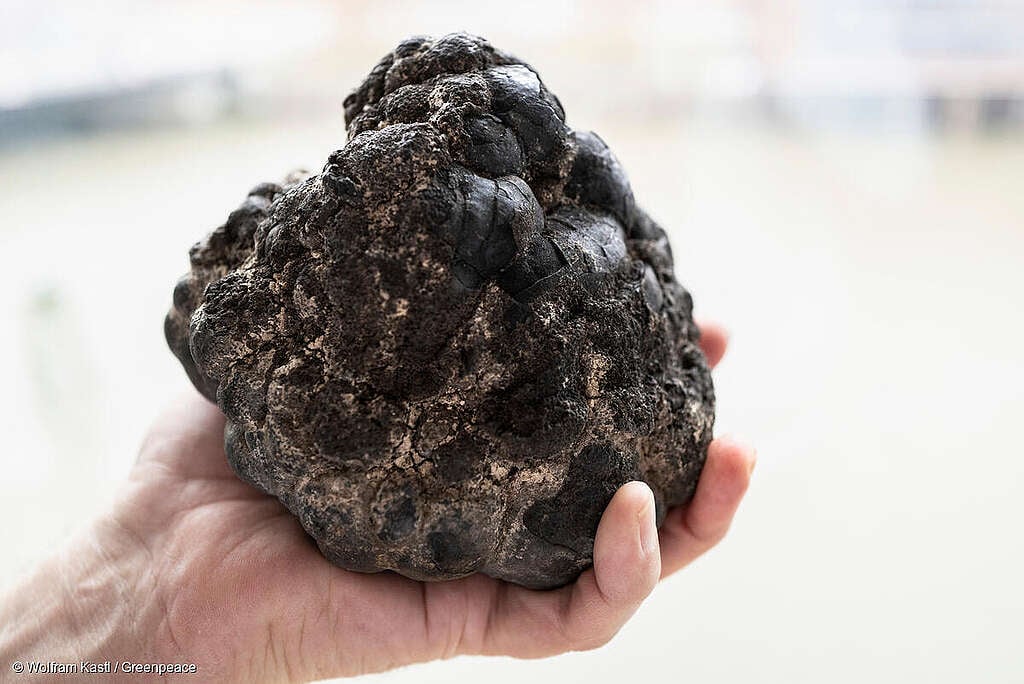
So, these little metallic lumps, which the wannabe deep sea miners have been metaphorically calling ‘batteries in a rock’ actually turned out to be just that – and they’re producing dark oxygen that could play a critical role in the deep ocean ecology.
The discovery of metallic nodules producing dark oxygen has been a huge surprise to science which could even require a new way of thinking about how life first began on planet Earth.
But it could also be the final straw in the case against deep sea mining. It could stop the industry before they begin.
The discovery was made in the Clarion-Clipperton Zone (CCZ), a huge flat area of the seafloor that stretches between Hawaii and Mexico, where mining companies like The Metals Company have plans to start harvesting these very same nodules that turn out to be producing all this dark oxygen.
These oxygen-producing nodules could be supporting a whole range of known and unknown deep sea lifeforms. Dark oxygen could be a critical factor in the deep sea ecosystem!
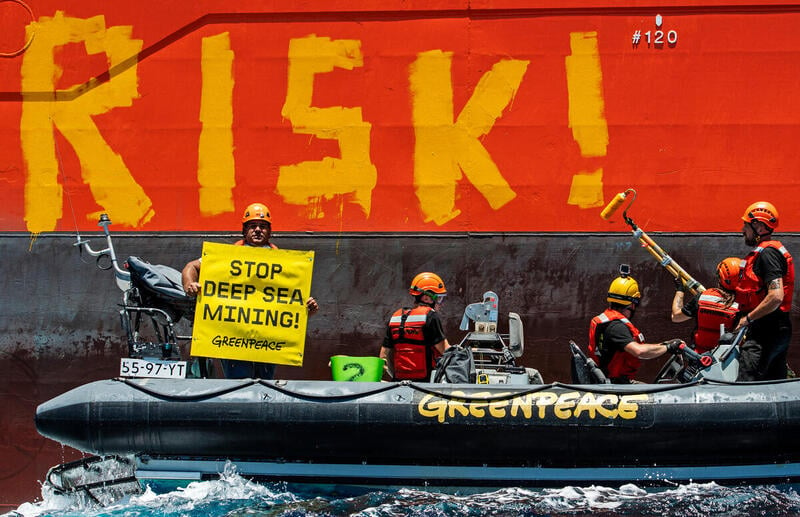
Greenpeace and others have long said that this new extractive mining industry should not be allowed to start in the very deep ocean because the life there is so little understood, and the ecosystems are fragile and potentially vital for the health of the ocean and all life on Earth.
This new discovery underlines the point.
The timing is good because world governments are meeting in Jamaica right now to decide the fate of this new mining industry. They’ll be deciding whether or not to allow deep sea miners like The Metals Company to go ahead with their plans to drop giant mining robots onto the seafloor to start harvesting these life-sustaining nodules.
Greenpeace is in Jamaica arguing strongly that deep sea mining should not be allowed to go ahead – especially now that we know the deep ocean is another source of oxygen that could be vital for the health of the ocean and all of us who depend on it.
In the climate and biodiversity crisis, we know that nature, in all its diversity, must be protected.

PETITION: Stop Deep Sea Mining
An emerging new industry could destroy this fragile and unique deep sea environment before we truly understand its importance.
Photo by Jong Marshes on Unsplash
For more information contact Deep Sea Defenders.